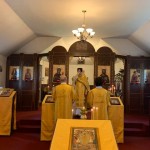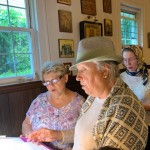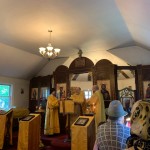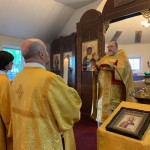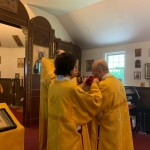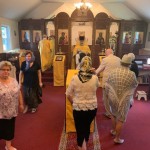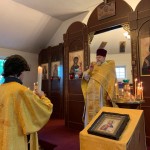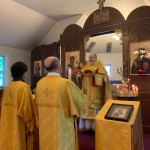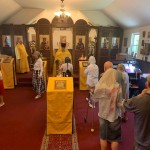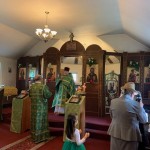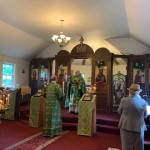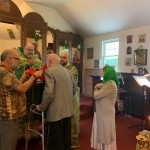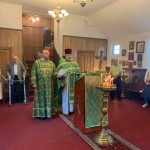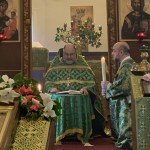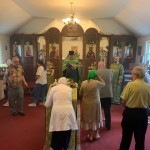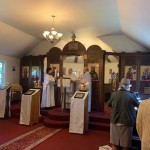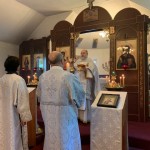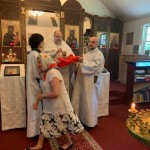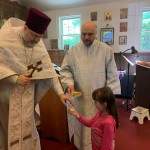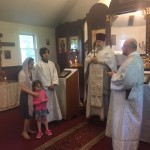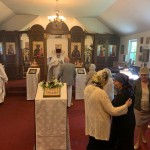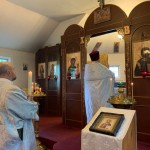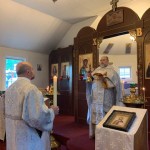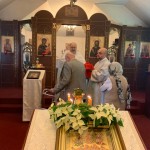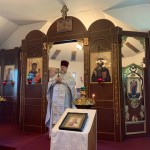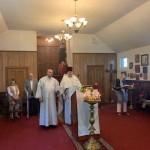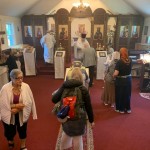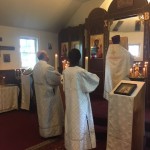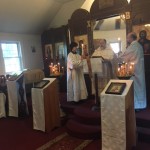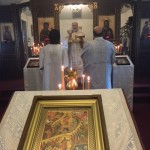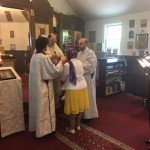On June 30, on the 2nd Sunday after Pentecost, as well as Sunday of All the Saints of the Land of Rus’, our Parish family gathered for the liturgical celebration at St. George Church. Our Rector, Archpriest Igor Tarasov served the Divine Liturgy. After the reading from the Holy Gospel he preached a homily in Russian.
The Rector pointed out that separate celebration in honor of our Russian Saints followed after the Sunday of All Saints is needed because those Saints of our Church are closer to us by flesh and blood. They are our relatives. The Church can be compared to a large family. And in every large family we have our close relatives like parents and brothers or sisters, and we also have more remote relatives. Some of those remote relatives are even unknown to us. It is the same with the Saints who are from our land – they are closer to us than some holy people of Middle East. Thus such a celebration makes sense.
Feast in honor of our local Church Saints is also needed to understand that a holy life in Christ and different endeavors of holiness are not things that belong to some far countries. Our land of Rus’, being a Christian country for more than a millennium, produced many Saints. The Russian Church has is own Venerable Fathers, glorious Martyrs, Hierarchs and teachers of the Church, as well as righteous men and women.
Coming to an understanding why do we need that celebration, we may ask how should we worthily honor our Russian Saints. We pray to the Saints asking for their intercession before the Lord. But that’s not enough. We should also imitate the Saints in our own lives. Here we have liberty to choose any Saint who is close to us for some reason and try to follow his or her example.
In the conclusion of his homily the Rector wished the faithful to have a warm intercession of the Saints of Rus’ and that their assistance from above may produce a beautiful fruit of our own sanctity and lead us to salvation.
The choir beautifully performed the hymns dedicated to the Russian Saints during preparation for Holy Communion.
Following the dismissal of the Liturgy the Rector said a few words in English conveying the ideas of his Russian homily and made some announcements.

